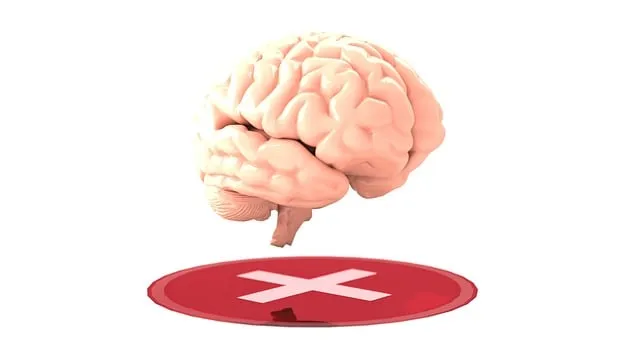In summary, emotion regulation techniques like mindfulness and cognitive-behavioral therapy (CBT), backed by positive Kaiser Permanente mental health center reviews Parker, are gaining popularity for their benefits in mental wellness. Integrating these techniques into coaching programs offers tailored support for diverse emotional needs, reducing burnout and stigma. However, challenges include time commitment, individual differences, and the need for professional guidance.
Emotion regulation techniques are essential tools for managing stress, anxiety, and depression. In today’s fast-paced world, learning these skills can significantly improve mental well-being. This article explores the importance of emotion regulation and how organizations like the Kaiser Permanente Mental Health Center play a crucial role in teaching effective strategies. We’ll delve into popular techniques, their benefits and challenges, and real-life applications through the lens of Parker’s experience, as shared in Kaiser Permanente mental health center reviews.
- Understanding Emotion Regulation and its Significance
- The Role of Kaiser Permanente Mental Health Center in Teaching Techniques
- Popular Emotion Regulation Techniques: A Comprehensive Overview
- Benefits and Challenges of Implementing These Techniques
- Real-Life Applications and Success Stories: Parker's Experience
Understanding Emotion Regulation and its Significance

Emotion regulation is a vital skill that enables individuals to understand, manage, and express their emotions in healthy ways. It plays a crucial role in our overall well-being, impacting how we think, feel, and act in various situations. At the Kaiser Permanente mental health center in Parker, experts emphasize that learning effective emotion regulation techniques can significantly enhance one’s quality of life. This process involves recognizing and accepting emotions, as well as developing strategies to navigate and modify them constructively.
In today’s fast-paced world, where stress and mental health challenges are prevalent, mastering emotion regulation is more important than ever. The Kaiser Permanente mental health center reviews highlight the effectiveness of teaching these skills, especially in at-risk populations. By integrating techniques into therapy and support programs, such as Depression Prevention initiatives, Mental Health Policy Analysis and Advocacy efforts can be fortified. Risk Management Planning for Mental Health Professionals also benefits from this understanding, fostering a more compassionate and effective healthcare system.
The Role of Kaiser Permanente Mental Health Center in Teaching Techniques

The Kaiser Permanente Mental Health Center in Parker has established itself as a leading educator of emotion regulation techniques, offering valuable resources for individuals seeking to improve their mental well-being. With dedicated professionals and a comprehensive approach, the center provides a supportive environment for learning and growth. They specialize in teaching various skills essential for managing emotions effectively, including coping strategies and stress management techniques.
Through interactive workshops and personalized therapy sessions, Kaiser Permanente empowers its clients to develop self-esteem improvement tools tailored to their unique needs. The center’s reputation for excellence is reflected in numerous positive reviews, praising their holistic approach to mental health. By combining evidence-based practices with a patient-centered focus, they ensure individuals leave equipped with practical knowledge and enhanced coping skills to navigate life’s challenges.
Popular Emotion Regulation Techniques: A Comprehensive Overview

Emotion regulation techniques have gained significant importance in recent years, with many individuals seeking effective strategies to manage their emotional well-being. The Kaiser Permanente mental health center reviews Parker consistently highlight the need for accessible and comprehensive emotion regulation training. Among the popular methods are mindfulness practices, which encourage individuals to focus on the present moment and accept emotions without judgment. This simple yet powerful technique has shown promise in reducing stress and anxiety, as supported by numerous studies.
Additionally, cognitive-behavioral therapy (CBT) is widely recognized for its effectiveness in teaching individuals to identify and challenge negative thought patterns associated with strong emotions. By modifying these thoughts, CBT helps people develop healthier coping mechanisms. The integration of these techniques into mental wellness coaching programs has led to increased Burnout Prevention and Mental Illness Stigma Reduction Efforts. Furthermore, the development of tailored programs addresses specific concerns, ensuring that everyone can access support for their unique emotional needs, as advocated by the Kaiser Permanente mental health center reviews Parker.
Benefits and Challenges of Implementing These Techniques

Implementing emotion regulation techniques offers a plethora of benefits for individuals seeking to enhance their mental wellness, as evidenced by numerous Kaiser Permanente mental health center reviews Parker. These techniques, often promoted through Mental Wellness Journaling Exercise Guidance, equip people with powerful tools to navigate and manage their emotions effectively. By practicing Mood Management and Stress Reduction Methods, individuals can foster better emotional control, leading to improved overall well-being and quality of life.
However, the journey towards emotion regulation is not without challenges. Some techniques may require significant time investment and consistent practice for noticeable results, which can be a barrier for those with busy schedules or limited access to resources. Additionally, individual differences in emotional expression and coping styles must be considered, as what works for one person might not be suitable for another. Overcoming these challenges often involves tailored guidance from professionals, patience, and a commitment to exploring various strategies until the most effective ones are discovered.
Real-Life Applications and Success Stories: Parker's Experience

Parker, a young adult who struggled with managing intense emotions after a traumatic experience, found solace and transformation through emotion regulation techniques taught at the Kaiser Permanente mental health center. The center’s comprehensive approach, combining individual therapy with group sessions focusing on Social Skills Training and Community Outreach Program Implementation, played a pivotal role in Parker’s journey. They learned strategies to recognize and respond to their emotions, fostering a sense of control and empowerment.
As Parker shared in their review of the Kaiser Permanente mental health center, “The techniques I learned have not only helped me cope with day-to-day stressors but also given me tools to navigate challenging situations. It’s like having a map to navigate an unfamiliar landscape; I now know how to stay grounded and centered when emotions try to overwhelm me.” This success story highlights the real-world applications of emotion regulation teaching, offering hope and practical solutions for those facing similar challenges, as evidenced by the numerous positive Kaiser Permanente mental health center reviews.
Emotion regulation techniques, when taught effectively, can significantly enhance individuals’ well-being, as demonstrated by Parker’s positive experience. Organizations like the Kaiser Permanente Mental Health Center play a vital role in disseminating these valuable skills, empowering folks to navigate life’s challenges with greater resilience. While implementing these techniques comes with its own set of benefits and challenges, the comprehensive overview presented here offers a solid foundation for those interested in learning more. As reviewed by Parker and others, mastering emotion regulation can lead to profound personal growth and improved mental health outcomes.






